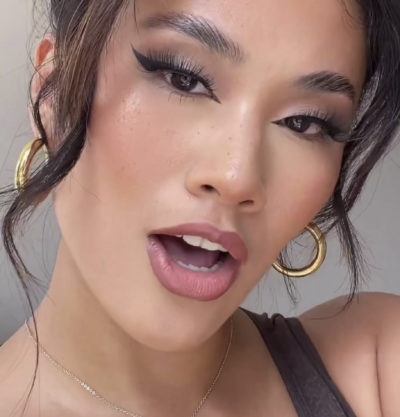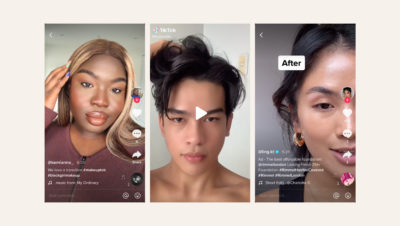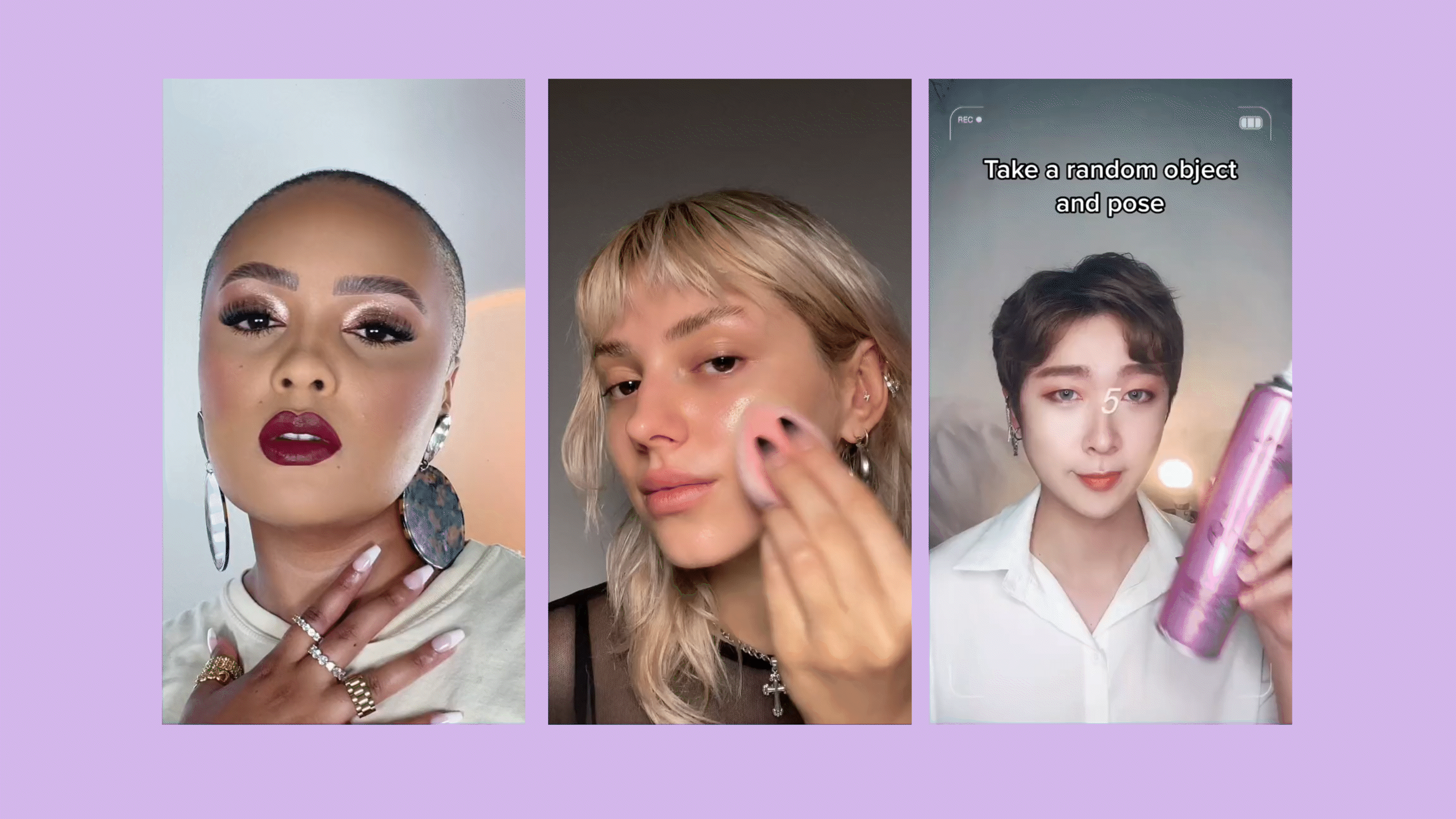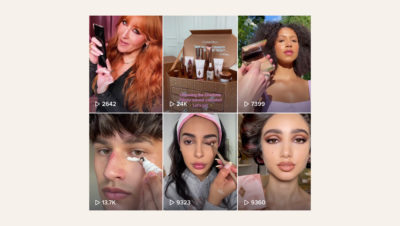BEAUTY ON TIKTOK IS MORE THAN SKIN DEEP
Gen Z’s favourite platform is democratising the beauty industry, one at-home-product-trial video at a time | Nov 16 2021

Gen Z’s favourite platform is democratising the beauty industry, one at-home-product-trial video at a time | Nov 16 2021
There’s no doubt that TikTok has changed the face of the beauty industry. It’s authentic, content-driven algorithm allows anyone to go viral as long as they have a compelling enough narrative. And what’s cutting through in the world of beauty is particularly refreshing. There’s an emphasis on diversity, self-care, learning and on the true efficacy of a product. Filter-culture this is not.
We spoke to TikTok experts Sascha Morgan-Evans and Kemi Adeeko at our partner agency OK COOL to understand the changes it’s bringing about.

Images (from left): Kemi Adeeko @kemianna_, Kenn Dayandayan @kennnnito and Ling Tang @ling.kt
What is it about TikTok that has such synergy with the beauty industry? What does it offer that other channels don’t?
SASCHA
I think in the past few years
Instagram and YouTube in
particular have become saturated
with a lot of similar content. It’s often highly
polished, with flawless beauty looks and, in
my opinion anyway, it feels like there isn’t
much leeway to do anything more on those
platforms. It’s often dominated by the same
people and they’re quite costly to work with,
it doesn’t allow for these new voices to break
through. TikTok is the opposite of that, it
allows new voices and new faces to break
through and people prosper from their own
creativity rather than their reputation.
KEMI
On TikTok, users feel comfortable to film in their own homes, they don’t have to have a proper camera or whatever, and I think that allows for more varied work and for more representation, you see beauty content from all types of people showing products in totally different ways, showing things like texture and acne, things that other platforms like Instagram tend to shy away from.

Images (from left): @Kahliyahmichelle, @daniellemarcan and @johnstankazue
How have you seen brands reacting to TikTok? Are they adapting to the diversity of people that TikTok promotes?
SASCHA
Gen Z has a lot of purchasing
power and that’s only going to increase. They don't want to see what they've already seen, these highly
polished white people wearing flawless
make up, they want to see people who look
like themselves. They want to see makeup
looks they can replicate, people who look
like them and things that seem realistic.
Gen Z sees through the veneer. Brands are going to have to follow suit otherwise
they’re just going to fall flat on their faces.
KEMI
If a brand cares about what
their audience thinks then they will adapt to that change. It’s
kind of a similar shift to when brands moved from using celebrities to endorse
their products to YouTube influencers. That
same shift is happening again, people are
moving from influencers on YouTube and
Instagram to the smaller creators on TikTok
who look like them, who use the product in
the way they would, who have the same tax
bracket, the same class. I started a haircare
brand when I was at Uni for girls with curly
hair. I started that on Instagram but in terms
of TikTok, I would always go creator-led.
When I engage with beauty brands online
it’s less interesting to see one appointed
person telling you to use a product, you
want that diversity that creators offer.

Charlotte Tilbury on TikTok @ctilburymakeup
Can you explain the difference between a creator and an influencer?
KEMI
There’s no set definition and it changes depending on who you talk to but I think influencers are more posed and polished. I tend to associate them more with Instagram and YouTube. Creators are on TikTok mostly and their content is a bit more niche, a bit quirkier, it’s different to the picture perfect stuff you get on Instagram.
SASCHA
I don’t think influencers are on TikTok. There used to be a space for them but I think that age of TikTok is over to be honest. It’s grown so massively and the way it works you’re served people who are like you and it’s more centred around communities rather than serving the masses.
How much does the true efficacy of a product matter on TikTok?
SASCHA
It’s so important. People use TikTok as almost a Trustpilot type of service. Personally, I’ll search reviews and ratings of products before I buy them and there’s always hundreds of people reviewing them, so you can find someone who looks like you actually using the product pretty easily. In that way, it’s bullshit proof.
KEMI
Audiences are way more critical now. There was a time, especially for me, when there was one brand doing foundation in my colour, and I had to buy a product out of necessity. But now there’s options and people are sharing their opinions and putting pressure on brands to produce what they actually want. Brands have to be more receptive because people will say how they feel and that will influence how people feel about it.